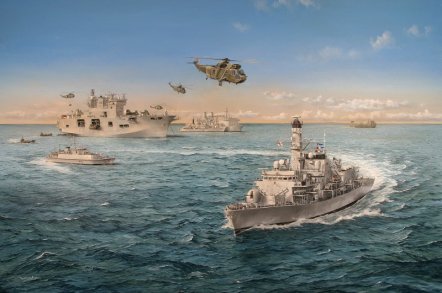Learning the Lessons of Intervention in Libya Idealists Aren’t Empirical
Those who allow ideology to trump national interests are poorly equipped to learn from experience. Specifically, euro-federalists are constructivists who believe and work towards the utopia of politically uniting the continent that bred the nation-state. Constructivists are philosophically positivist since they believe that solutions can be engineered without regard for the past or for the context. These old world bastards of the American Enlightenment are thus simply unable to draw conclusions from experience.
This is alas a recurring problem in Brussels – and in Washington D.C., I imagine – where problems arising everywhere never seem to elicit a logical consequential response from those in power, or at least not one that questions the legitimacy of the system in place. Eurosceptic populism, failed nation-building efforts abroad, social conservatism in allegedly euro-enthusiastic societies, challenges from regional hegemons, none of it is worthy of reconsidering the very legitimacy of the sacred union. Instead, bland politically orthodox conferences and workshops in Brussels focus on communication: how does one ‘communicate’ to the European citizens that Brussels is actually doing what is right for them? The fact that past policies fail is admitted on occasion only insofar as it serves the purpose of justifying why European governments must double-down on such policies and/or endow Brussels institutions with even more power to make the policies work; a line of argument all too similar to the neocon creed that “history will do us justice”.
Empiricists on the other hand, look to the past for guidance and usually with greater success. That which is not questioned is that which has worked longest: the nation-state. There is room for innovation but not revolution and utopias. Take Vladimir Putin who finds no alternative but to fight XXI century wars around the control of population centres – as terrorism and the age of humanitarianism now force all states to do – but who also understands that wars must be kept limited in scope and always proportional to the means available. He is not one to go on crusades around the world, intervening in ungovernable exotic vacation spots for whichever asinine cause du jour. Putin doesn’t shy away from war but he tries to negotiate first. The Russian President seeks military control to achieve strategic goals, not to defend idealistic causes.
This long introduction thus serves to prepare the reader for what will be an analysis of what goes wrong when a positivist tries to analyse empirically.
Committed euro-federalist Daniel Keohane set upon himself to learn lessons from the intervention in Libya, a topic made pertinent given that “(…) there is mounting speculation that a coalition of Western countries will launch a new military campaign there to tackle the growing threat from the self-styled Islamic State”. As he tells it, since 2011 “(…) a civil war has prevented the formation of a functioning Libyan government”. In truth, that civil war is not quite so …random. It was the idea of some NATO member-states to abuse a UNSC humanitarian resolution in order to launch a full scale military campaign against the Qaddafi regime which ultimately killed him. It was also the responsibility of both NATO and the EU to abstain from supporting any other strong man – such as General Hiftar for instance – after the Qaddafi overthrow to fill in the power vacuum. That would have pre-empted the emergence of some nasty actors like the Islamic State but of course, that would have meant the puritan Liberal democracies getting their hands dirty …
The Libyan civil war – if one posits the existence of such a coherent entity called Libya – also caused according to the author “(…) large flows of migrants and refugees into the EU”. Oh by Jove, such a nuisance … Say, how come that is identified as a problem but not one single brain in all the think-tanks of the grey city ever came up with an obvious response: stopping the flows? How quick they are to assign military vessels to the Mediterranean …to rescue the illegals, to welcome them, not to stop them. Here’s a thought: if the flows are not a positive development, what about not encouraging or facilitating them?
“(…) Europeans have more direct security interests at stake in Libya, which is why France and the UK initiated the 2011 intervention”. This one is particularly rich: British and French have strong interests in Libya, thus a military intervention that turns the territory into an anarchic hell hole is the way to go. How can someone be so blind or disingenuous? How exactly were the interests of the UK and France defended by overthrowing Qaddafi? Because if the dictator was the problem and only a democracy can serve those interests, then I dare say that relations with any Middle East state are pointless. If the instability resulting from the Arab Spring was the problem then an easier and more productive solution would have been to follow the Michelle Alliot-Marie doctrine: launch an intervention all right, but one on the side of the dictators! In all likelihood the real reason for the Franco-British intervention was the prospect of easily getting rid of Qaddafi along with a regime which had been a geopolitical thorn in the Atlanticists side for decades. No love lost for Qaddafi here. Normally the French are utterly pragmatic about their interventions – if Françafrique is anything to go by. What is precisely the corrosive element in the mix here, is the ideological influence of organisations which should have remained intergovernmental but slowly grew into lobbies of their own importance – aimed at self-perpetuation. The EU and NATO are no longer instruments at the service of governments, they have developed rather as a cancer working against the interests of their member-states by promoting normative ideologies irrespective of results. The closer to Brussels a military intervention is carried out, the more compliant it will have to be with the politically correct narrative of the NATO HQ or the European Commission/Parliament. Hence the EU’s Neighbourhood Policy ignited a ‘Ring of Fire’ around the old continent whereas France’s client states in Africa or America’s in the Middle East remain quite stable: idealism breeds disaster, time-tested pragmatism ensures stability.
“(…) NATO now seems unlikely to act, partly because the image of its 2011 intervention is tarnished among some Libyans due to a lack of follow-up, and partly because the alliance is busy deterring Russia in Eastern Europe”. Again, if by lack of follow-up he means that another strong man was not backed to replace Qaddafi, then by all means, this is a valid statement. That, however, is not what he means: he means that more funding, more troops and more state-building would have staved off anarchy – you know, much like it did in Iraq or Afghanistan. In practice what Brussels sees as a solution in Libya, is a more muscled Bosnia-Herzegovina paradigm. “(…) the EU has strongly supported UN diplomatic efforts to form a unity government of rival Libyan factions and has deployed four missions to tackle some of the security challenges emanating from Libya since 2011”, see my point? The solution is to bribe and pacify local contenders ad infinitum. As for the Russian ‘threat’, if the supranational utopia’s legitimacy weren’t tied to universalist maximalist ideological principles, strategic compromises and tactical choices could be made to divert resources from one theatre to another. Yet the EU is no state which therefore prevents it from acting amorally. Therefore the actions of supranational ideological actors will always be maximalist irrespectively of the available means, and they will always move to confront all those who divert from their normative universalism regardless of the level of threat they represent: for universalists, every dissension is a vital existential problem.
“The second lesson is that the EU shouldn’t assist countries without legitimate governments”. True but only if one accepts the unwillingness to support non-liberal-democratic solutions. That said, whereas some EU states such as France have a national interest in protecting certain authoritarian regimes, most EU states in the East and North have nothing to gain by investing the political capital. Once again, divergent national interests prevent interventions overall.
“The third lesson is that the EU has a useful military role in European homeland security”. Comes to mind that enforcing borders against mass migration could be useful but probably not what is on his mind: “(…) a search-and-rescue operation in the Mediterranean code-named Operation Triton and coordinated by the EU’s border agency, Frontex (…) has saved thousands of lives since November 2014”…


